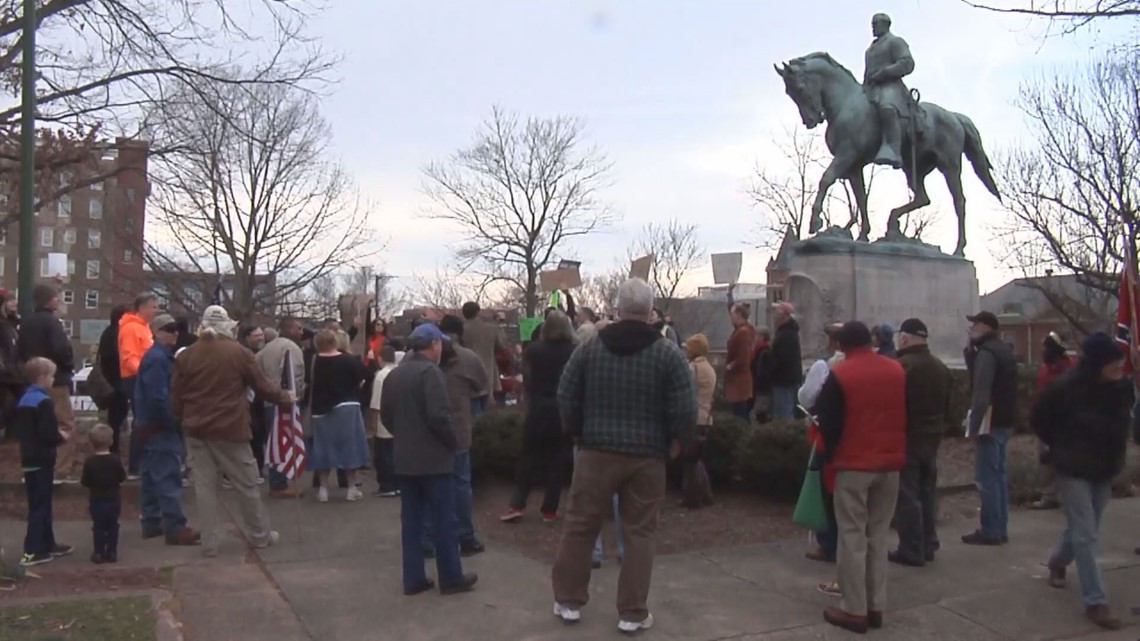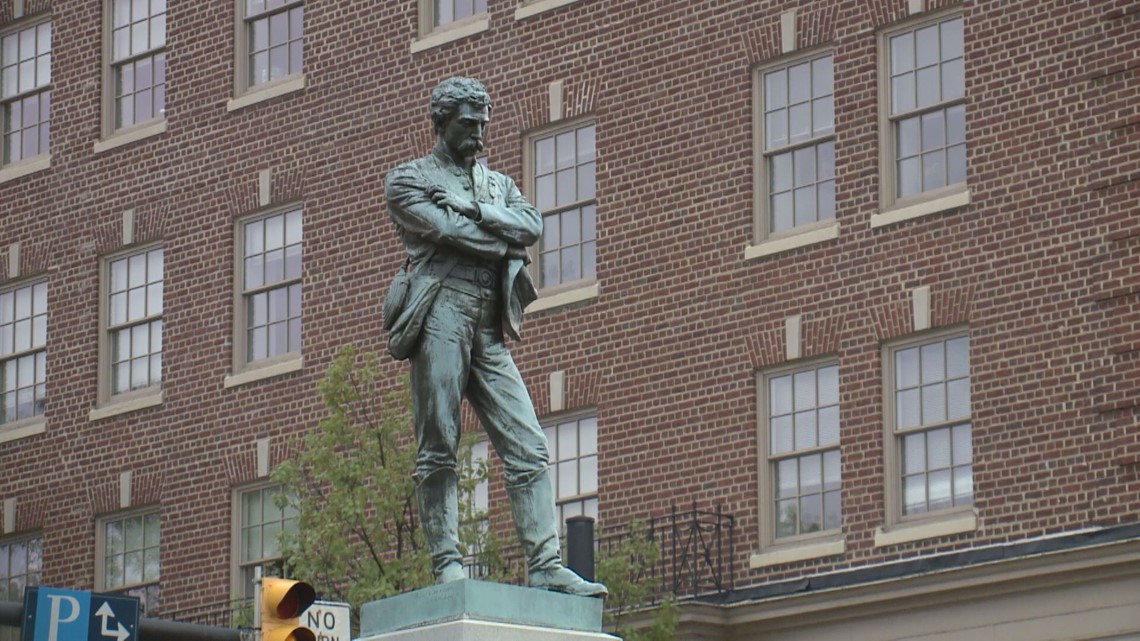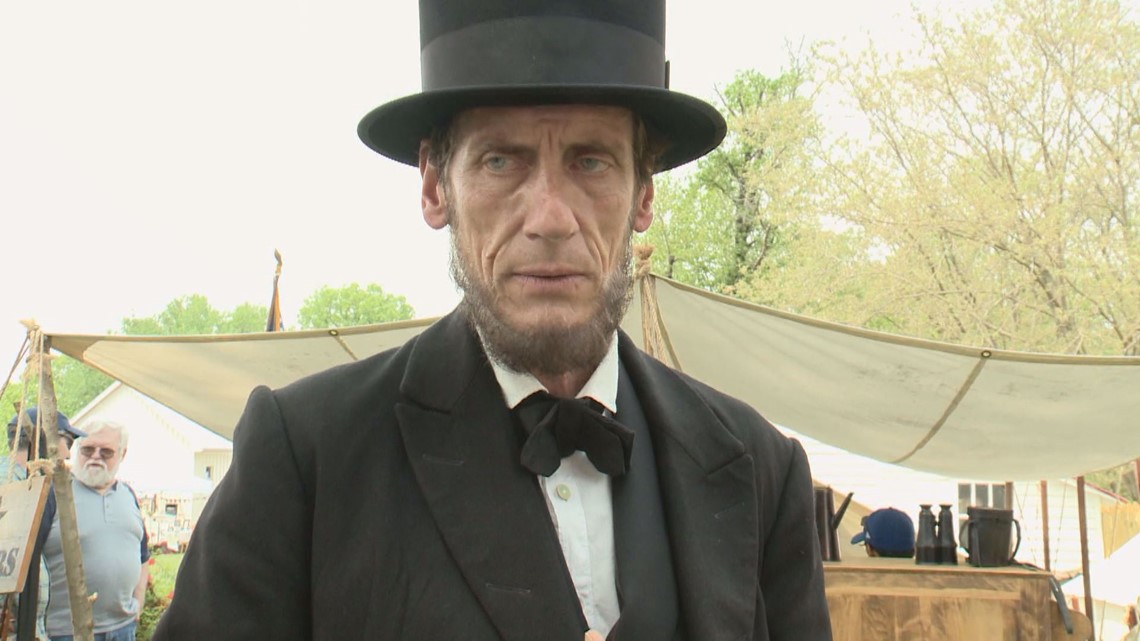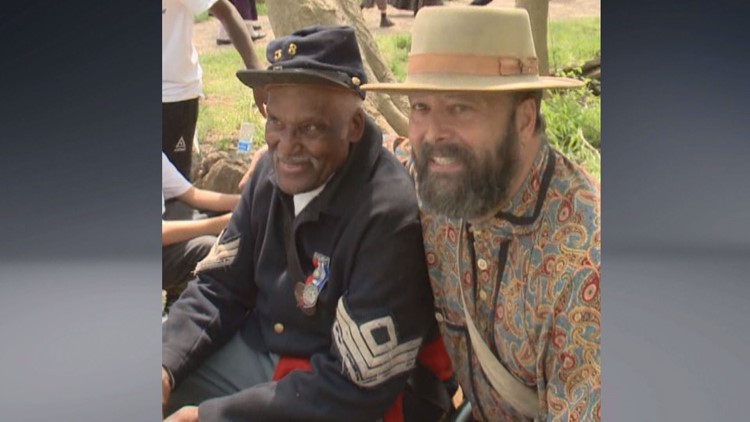A debate is raging over whether to take down Confederate monuments, statues and change names in our area.
In Virginia, debates are being sparked over changing the names of J.E.B. Stuart High School and Jefferson Davis Highway.
City councils in Charlottesville and Alexandria have recently voted to move Confederate statues from public places. Protests have erupted over that decision in Charlottesville.
One hundred and fifty-two years after America's bloodiest war, we still can't see eye to eye.
"We're looking to erase history to change it, and you can't change it. It actually happened," said William Wood Coe, who is named after his ancestor, a sergeant in the Confederate army.
Coe joined to fight for the Confederacy "because he was a North Carolinian and North Carolina was invaded by the federal army," he explained.
Coe, one of many reenactors participating in Fairfax Civil War Day on April 29, 2017, is angry about the movement underway to remove Confederate statues and names from public places.
"A statue is signifying a part of the history of this country. Whether you agree with it and what the side fought for, or whether you disagree with it," said Coe.
There have been protests over the decision to remove the statue of Confederate General Robert E. Lee from a Charlottesville park. The General's reenactor, Al Stone, says people don't know the full story.
"Robert E. Lee did more single handedly to unite these United States after the war then anybody else," said Stone. "Where do they stop? Do they take down monuments to the people of the American Revolution?"


But on the Union side, among the reenactors of the United States Colored Troops, there's a different sentiment about those Confederate hero statues and names.
"It's a symbol of oppression, a symbol of a period of time that discounted me as a human being," said Wesley Wilson who is portraying a soldier in the U.S. Colored Troops. "That symbol should not be placed in an area that I have to interact with it on a regular basis."
You can't miss the huge statue of the Confederate soldier in the middle of Washington Street in the city of Alexandria.
"I think it's a symbol of people who died in a struggle," said Alexandria attorney Martin Conway.
But the statue is a shock to some northern transplants.
"If you lived in Germany, would you have a Nazi soldier statue? Got to go," said Richard Ward who moved to Alexandria from New York a few years ago.
Alexandria's city council recently voted to remove it.


Judy Cohen moved to Alexandria from Boston and wants the statue to stay.
"If you take everything about the Civil War and put it in a dark corner, then you've lost a piece of America's history," Cohen said.
Two life-long Alexandria residents who are African American are used to the statue.
"I love it. I look forward to seeing it when I come through here all the time," said Kimberly Jackson.
"I don't see a reason to move it. It's been here forever. I think it's part of Old Town," Georgette Chandler said.
George Mason University History Professor Spencer Crew is teaching a course on slavery, abolition and the Underground Railroad.
"If you're talking about the Confederacy, your talking about that way of life. You're talking about slavery," said Crew. He says it's wrong to use public places to honor those who fought for that way of life.
"Those symbols are of oppression and hatred and bigotry. That's what I see when I see them," says GMU history student Tom Riddle who lived in Latvia for four years. "There are no remnants of the Soviet occupation left. All those statues of Lenin and Stalin are gone and there's a reason why," he said.
"The comparison is apples to oranges. Stalin killed Latvians. He waged war against his own people in Russia. He was a dictator. Robert E. Lee and Jefferson Davis were neither," said reenactor William Coe.
Some argue, instead of taking down statues, communities should add monuments for black leaders to tell a more complete story.
"And let the people have the knowledge of the history that makes this country the country that it is," said GMU history student D.L. Moffatt.


The man portraying President Abraham Lincoln, the Great Emancipator, would not be pinned down on whether Confederate statues and names should be taken down.
"We're all friends now. And if some folks want to honor their ancestors, I say, that's fine," he said. "But, if other folks, living in that same state, think it might be an insult to them, well, they should talk it out. They should talk it out and come to that decision themselves. I'm going to stay out of that."



